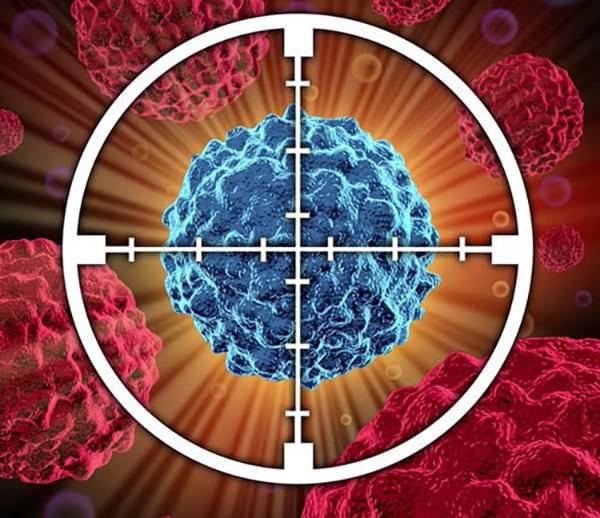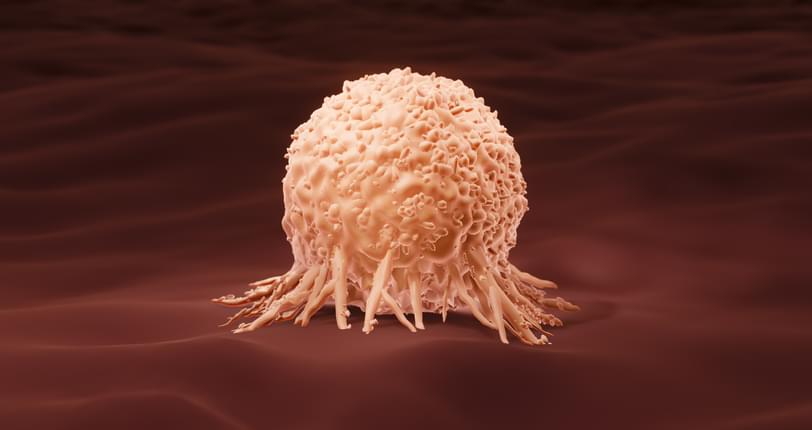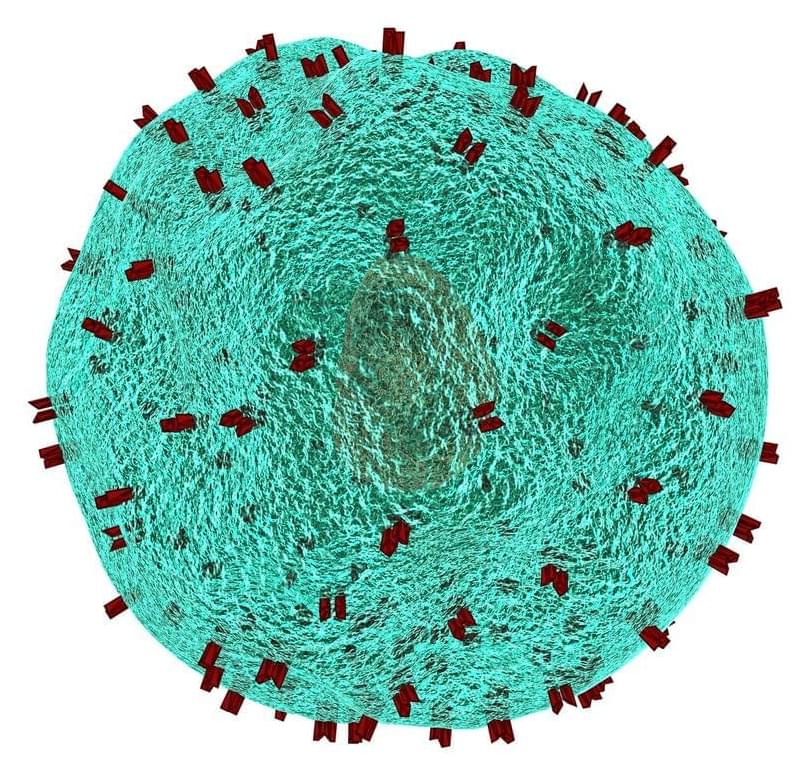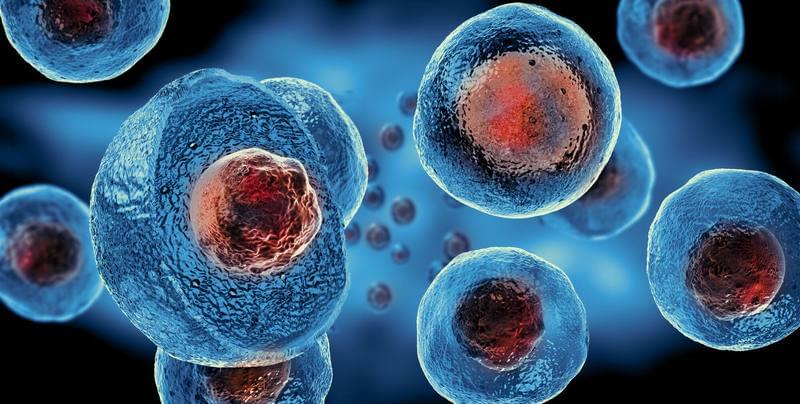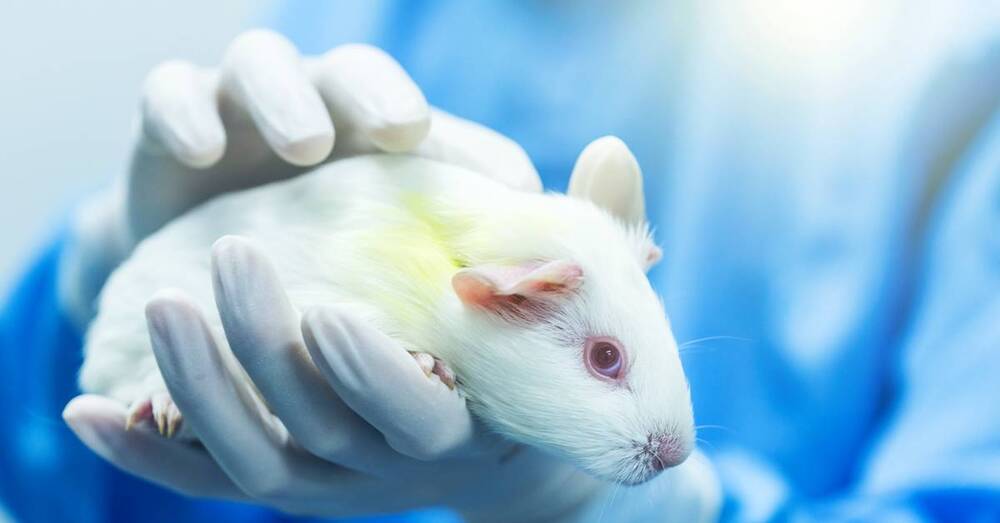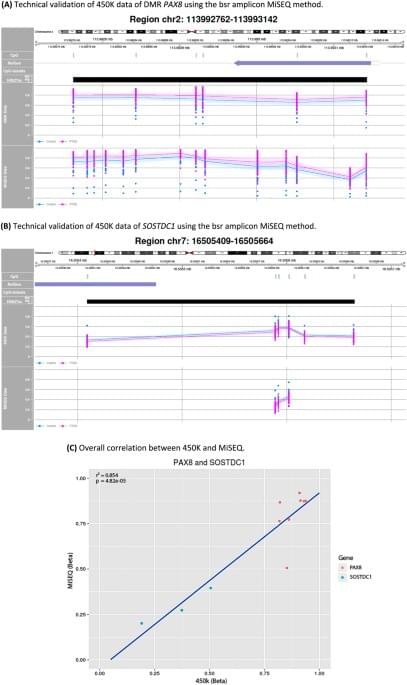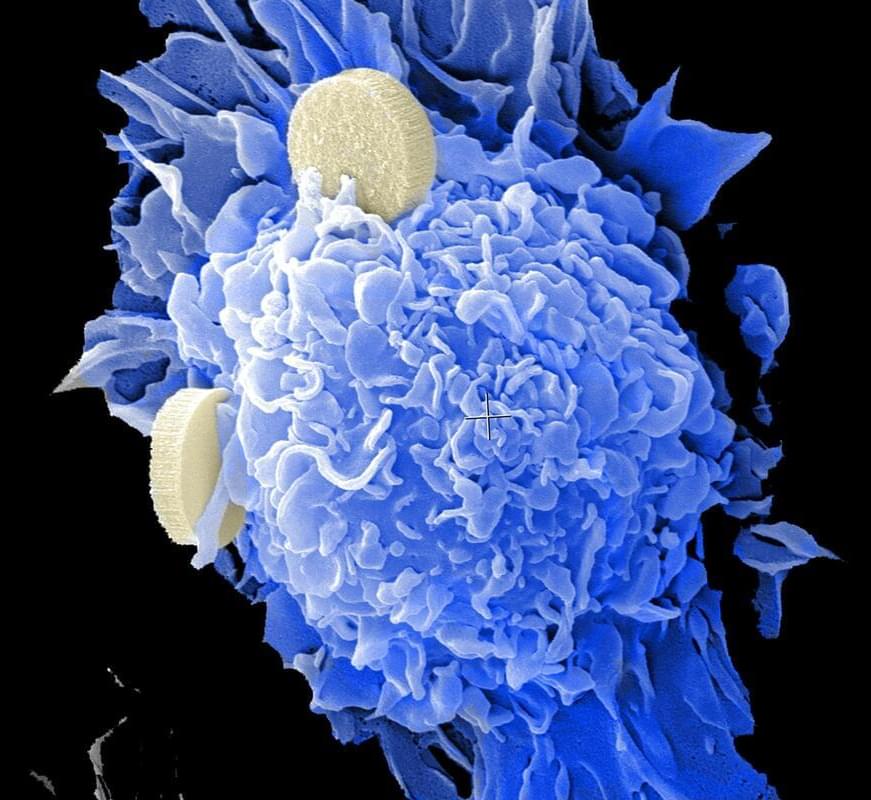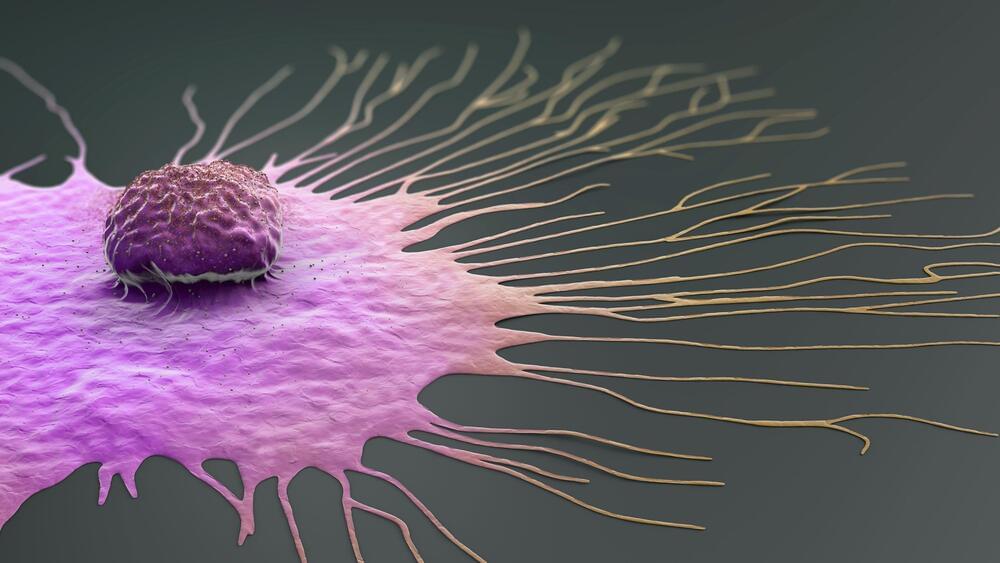Archive for the ‘biotech/medical’ category: Page 478
Nov 2, 2023
Cancer Drug May Be Repurposed for Inflammatory Diseases
Posted by Shubham Ghosh Roy in categories: biotech/medical, genetics
A cancer drug in the final stages of clinical trials may be able to help treat a range of inflammatory diseases including gout, heart failure, cardiomyopathy, and atrial fibrillation, according to scientists at the University of Cambridge.
Their findings are published in the Journal of Clinical Investigation in an article titled, “PLK1 inhibition dampens NLRP3 inflammasome-elicited response in inflammatory disease models.”
“Unabated activation of the NLR family pyrin domain–containing 3 (NLRP3) inflammasome is linked with the pathogenesis of various inflammatory disorders. Polo-like kinase 1 (PLK1) has been widely studied for its role in mitosis,” wrote the researchers. “Here, using both pharmacological and genetic approaches, we demonstrate that PLK1 promoted NLRP3 inflammasome activation at cell interphase. Using an unbiased proximity-dependent biotin identification (Bio-ID) screen for the PLK1 interactome in macrophages, we show an enhanced proximal association of NLRP3 with PLK1 upon NLRP3 inflammasome activation. We further confirmed the interaction between PLK1 and NLRP3 and identified the interacting domains.”
Nov 2, 2023
Cancer Proteins Deep within Tumor Cells Targeted by Dimeric Antibodies
Posted by Shubham Ghosh Roy in category: biotech/medical
Researchers hope dimeric IgA-based immunotherapy could be more precise, long-lasting, and less toxic than current anticancer treatments.
Nov 2, 2023
‘Plug and play’ nanoparticles could make it easier to tackle various biological targets
Posted by Paul Battista in categories: bioengineering, biotech/medical, life extension, nanotechnology
Engineers at the University of California San Diego have developed modular nanoparticles that can be easily customized to target different biological entities such as tumors, viruses or toxins. The surface of the nanoparticles is engineered to host any biological molecules of choice, making it possible to tailor the nanoparticles for a wide array of applications, ranging from targeted drug delivery to neutralizing biological agents.
The beauty of this technology lies in its simplicity and efficiency. Instead of crafting entirely new nanoparticles for each specific application, researchers can now employ a modular nanoparticle base and conveniently attach proteins targeting a desired biological entity.
In the past, creating distinct nanoparticles for different biological targets required going through a different synthetic process from start to finish each time. But with this new technique, the same modular nanoparticle base can be easily modified to create a whole set of specialized nanoparticles.
Nov 2, 2023
Researchers develop approach that could help supercharge T-cell therapies against solid tumors
Posted by Shubham Ghosh Roy in categories: biotech/medical, engineering, health
Researchers at the National Institutes of Health have developed a way to potentially increase the effectiveness of T cell–based immunotherapy treatments, such as CAR T-cell therapy, against solid tumors. T cells are specialized white blood cells of the immune system that eliminate infected or abnormal cells. In animal studies, the enhanced T-cell therapies were effective against cervical cancer and neuroblastoma, a common solid tumor in children. The findings, by scientists at the National Cancer Institute (NCI), part of NIH, appear in Clinical Cancer Research.
CAR T-cell therapy is a form of cellular immunotherapy that involves engineering T cells in the laboratory so they can specifically target and kill tumors. CAR T-cell therapy has been successful in treating blood cancers, but it hasn’t worked well for solid tumors. To improve the effectiveness of T-cell therapy against solid tumors, researchers at NCI’s Center for Cancer Research engineered T cells (CAR T cells and another form of cellular immunotherapy called TCR T cells) to carry cytokines, which are proteins that can boost T-cell function.
In laboratory studies, CAR and TCR T cells modified to express the cytokines IL-15 and IL-21 on their surface killed far more cancer cells than T cells carrying just one of these cytokines or neither of them. Previous research has found that treating patients with large amounts of cytokines caused severe, potentially fatal, side effects. The new approach aims to deliver this cytokine boost in a much more targeted way.
Nov 1, 2023
Engineering stem cells to treat liver disease
Posted by Shubham Ghosh Roy in categories: biotech/medical, engineering
Transplant is the only option now for liver failure, but it’s not for everyone. One Mayo Clinic M.D./Ph. D. student and her mentor are researching ways to regenerate liver cells as a possible treatment for end-stage liver disease.
“Research provides us with the understanding to develop tools to make big changes in clinical problems like those facing patients with liver failure,” says Nguyen. “I want to be on the forefront of developing medical technologies that provide alternatives. I derive a lot of passion for research through thinking about the future patients I will be treating in the clinic.”
Nguyen is a fifth-year M.D.-Ph. D. student in the Mayo Clinic Alix School of Medicine, who is also completing her Ph.D. in regenerative sciences through the Mayo Clinic Graduate School of Biomedical Sciences.
Continue reading “Engineering stem cells to treat liver disease” »
Nov 1, 2023
Scientists Use CRISPR to Delete Fearful Memories in Rats
Posted by Quinn Sena in categories: biotech/medical, neuroscience
Year 2020 face_with_colon_three
Ah, Memories! They can be some of our best assets or our most painful tormentors. Good memories give us a sensation of warmth and hope for better times, but bad memories can cause serious trauma.
Nov 1, 2023
Genetic variant in CACNA1C is associated with PTSD in traumatized police officers
Posted by Quinn Sena in categories: biotech/medical, education, genetics, neuroscience, sex
In this study we aimed to detect epigenetic and genetic loci associated with PTSD in a homogeneous cohort of traumatized police officers. Both a genome-wide and hypothesis-driven replication approach did not result in DMPs between PTSD patients and trauma-exposed controls. GSE analysis on the top 100 DMPs showed, however, a plausible association of the dopaminergic neurogenesis pathway with PTSD. Furthermore, we observed one DMR located at the PAX8 gene suggesting consistent hypermethylation in PTSD patients. Genetic analyses yielded three CpG-SNPs significantly associated with PTSD. Of these, one CpG-SNP, located at the CACNA1C locus, was also significantly associated with PTSD in an independent replication sample of trauma-exposed children. Notably, this result shows that the Illumina 450K array is not restricted to epigenetic surveys but can provide informative genetic data as well.
Although our sample was small, it was highly homogenous as all participants were former or current police officers, and cases and controls were matched for sex, age, education, and years of police service. All participants reported multiple prior traumatic events, without significant group differences in reported types of traumatic experiences. PTSD patients fulfilled current diagnostic criteria for PTSD, while our trauma-exposed controls had minimal PTSD symptoms and did not report lifetime PTSD or other trauma-related psychiatric disorders. Thus our controls were apparently resilient to adverse mental health outcome of trauma. This study design, including extreme phenotypes following similar trauma load, was considered to favor detection of PTSD-associated loci, as also suggested by others [22]. Nevertheless, our genome-wide survey clearly remains limited in statistical power.
Nov 1, 2023
Docetaxel use associated with significant reduction in prostate cancer death in very poor prognostic group
Posted by Shubham Ghosh Roy in category: biotech/medical
Men with high-grade prostate cancer and low prostate-specific antigen (PSA) levels have a poor prognosis. The question remains as to whether the chemotherapy drug docetaxel, which increases survival in metastatic prostate cancer, can improve the cure rate in these patients.
In a new study by investigators from Brigham and Women’s Hospital, a meta-analysis of five prospective randomized clinical trials (RCTs) found that adding docetaxel to standard-of-care (SOC) treatment was associated with a 70% reduction in death from prostate cancer-specific mortality (PCSM). The study was published today in JAMA Network Open.
Investigators performed a meta-analysis of the RCTs evaluating SOC treatment with radiotherapy and androgen deprivation therapy or with radical prostatectomy versus SOC plus docetaxel. The final study cohort of 2,184 patients included 145 eligible patients (6.6%) across four eligible RCTs.
Nov 1, 2023
Triple-Negative Breast Cancer Approach That Targets Translation Looks Promising
Posted by Shubham Ghosh Roy in category: biotech/medical
Triple-negative breast cancer (TNBC) is an aggressive tumor with a very poor prognosis and limited therapeutic targets. Now, researchers at Baylor College of Medicine and collaborating institutions have discovered in diverse TNBC animal models that targeting the protein elF4A with the small molecule drug Zotatifin suppressed tumor cell proliferation and remodeled the tumor immune microenvironment. The findings may lead to clinical trials to assess the potential patient benefits of this novel approach.
The team published their findings in The Journal of Clinical Investigation in an article titled, “Targeting EIF4A triggers an interferon response to synergize with chemotherapy and suppress triple-negative breast cancer.”
“Protein synthesis is frequently dysregulated in cancer and selective inhibition of mRNA translation represents an attractive cancer therapy,” wrote the researchers. “Here, we show that therapeutically targeting the RNA helicase eIF4A by Zotatifin, the first-in-class eIF4A inhibitor, exerts pleiotropic effects on both tumor cells and the tumor immune microenvironment in a diverse cohort of syngeneic triple-negative breast cancer (TNBC) mouse models.”

